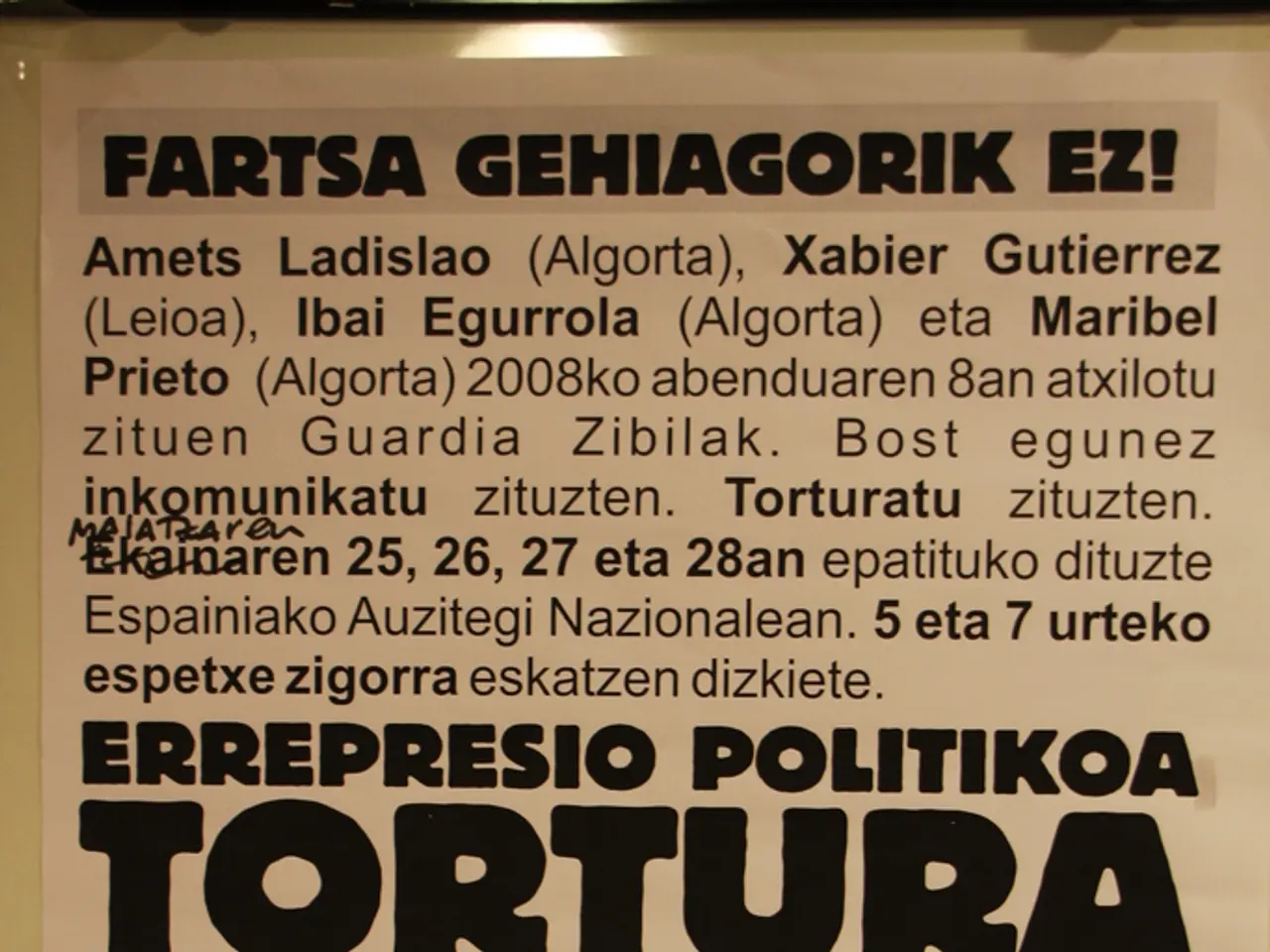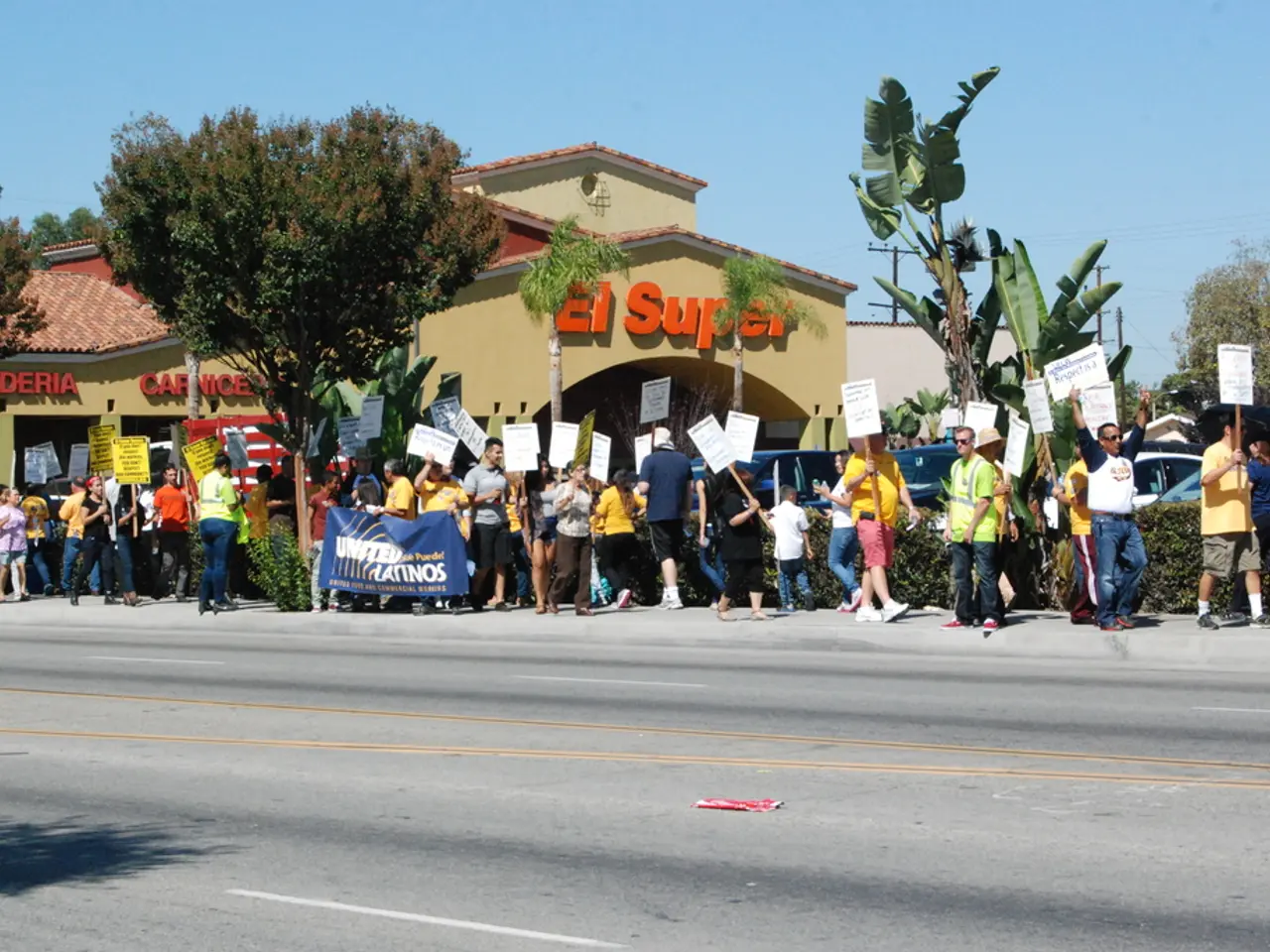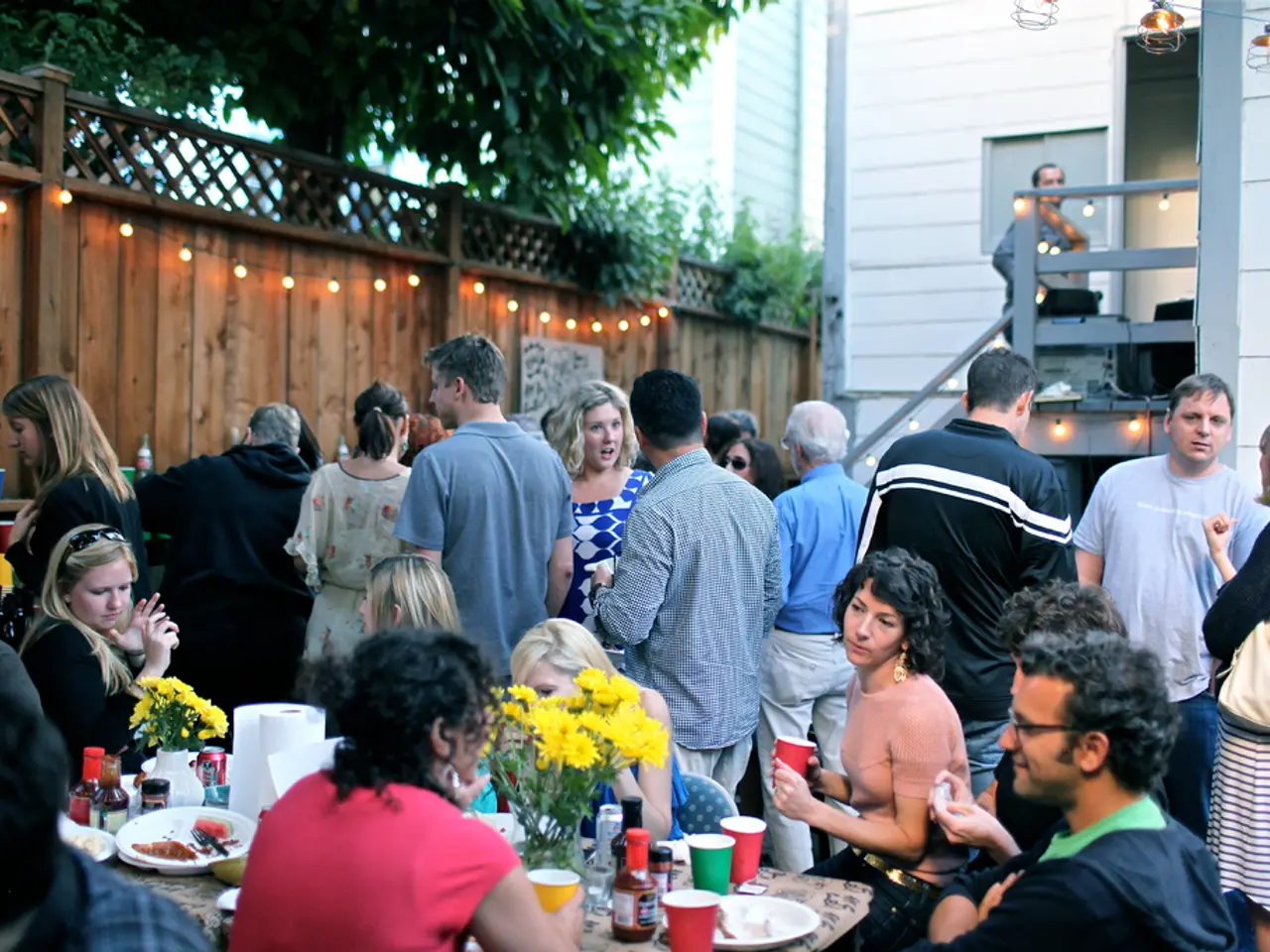Town's investigation over restriction of Muslim festivities by local authorities in Spain
The small town of Jumilla in Spain has been under scrutiny following a controversial decision to ban religious celebrations, particularly Muslim festivities, from municipal sports facilities and public venues. This move, initially proposed by the far-right Vox party and approved with amendments by the conservative Popular Party, has been widely criticised as discriminatory against the local Muslim community of approximately 1,500 people[1][2][3].
The ban, which prohibits "cultural, social or religious activities not affiliated with the City Council," effectively blocks Muslim religious gatherings in civic centers and gyms[1][3]. Officials justify this as a means to promote traditional and cultural values, but critics argue it undermines constitutional religious freedoms and disproportionately impacts Muslims, who have long used these facilities for their religious observances[1][2][3].
In response, Spain's national government has formally ordered Jumilla to lift the ban, demanding a response within one month to avoid legal challenges based on Article 16 of Spain's Constitution, which guarantees freedom of religion[2][3]. National ministers, including Migration Minister Elma Saiz, denounced the ban as discriminatory and ignorant of Islamic cultural contributions to Spanish society[2][3]. The Catholic Church and the Federation of Jewish Communities in Spain also condemned the measure as a serious democratic and religious freedom violation[2].
The Ombudsman of Spain, Angel Gabilondo, has launched an investigation, seeking clarification on how Jumilla plans to uphold worship rights for all religious groups that rely on public spaces[1]. The government's strong response highlights a commitment to constitutional protections against indirect bans on religious minority communities.
The controversy has sparked widespread criticism and calls to defend public worship. Mounir Benjelloun Andaloussi Azhari, president of the Spanish Federation of Islamic Organizations, described the restrictions as "Islamophobic and discriminatory," while Mohamed El Ghaidouni, secretary of the Union of Islamic Communities of Spain, called the ban "institutionalized Islamophobia"[1].
Meanwhile, the Vox party in Murcia has welcomed the measure on social media, stating that "Spain is and will be forever the land of Christian roots!"[1]. This stance has only served to further fuel the debate and calls for a more inclusive and respectful approach to religious diversity in Spain.
References:
[1] BBC News (2021). Spain's Jumilla town bans Muslim celebrations from public spaces. [online] Available at: https://www.bbc.com/news/world-europe-56535711
[2] El País (2021). Spain's Ombudsman orders Jumilla to lift ban on Muslim celebrations. [online] Available at: https://english.elpais.com/spain/2021-06-04/spains-ombudsman-orders-jumilla-to-lift-ban-on-muslim-celebrations.html
[3] The Guardian (2021). Spain's Jumilla bans Muslim religious festivals in public spaces. [online] Available at: https://www.theguardian.com/world/2021/jun/03/spains-jumilla-bans-muslim-religious-festivals-in-public-spaces
- The decision by the Jumilla government to ban Muslim religious celebrations from municipal sports facilities and public venues has been criticized as discriminatory, disproportionately impacting the Muslim community, and undermining Spain's constitutional religious freedoms.
- Officials in the national government of Spain have ordered Jumilla to lift the ban and have launched an investigation seeking clarification on how the town plans to uphold worship rights for all religious groups that rely on public spaces.
- Critics argue that the ban, which effectively blocks Muslim religious gatherings in civic centers and gyms, is a serious violation of religious freedom, while supporters of the ban, such as the Vox party, contend that it promotes traditional cultural values.
- Some media outlets have reported that the controversy has sparked widespread criticism and calls for a more inclusive and respectful approach to religious diversity in Spain, with religious leaders and organizations condemning the measure as a violation of democratic principles and religious freedom.







